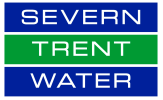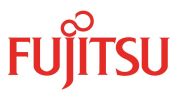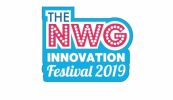
Menopause Awareness with West Midlands’ Police - Case Study
The challenge:
The first hurdle was to get everyone talking and so the Laughology style of delivery worked perfectly, fitting the police ethos. This opened minds to creating working groups that would support change processes, helping everyone work and live better through the menopause.
What we did:
After meeting with their Chief Inspector, Yvonne Bruton, Laughology put together a programme that consisted of menopause awareness workshops for all the West Midlands Police.
We delivered several workshops, which included men, and helped with a campaign to engage them further. From there, they recruited champions, who went on to set up forums and challenge working practices that were unhelpful, offering solutions.
Examples of these solutions included:
- Having an additional change of uniform for women who may experience hot flushes, as officers expressed how difficult it could be to have clean uniform ready for the following day
- Increased sanitary wear in toilets and ensuring all machines installed and full.
- Creating a Reasonable Adjustment Passport (RAP)
The results
As a result of the programme, a number of changes were put in place to help support members of the police force experiencing the menopause or menopausal symptoms.
These included:
- Supervisor briefings – workshops (delivered by Laughology) with a humorous approach help people understand the issues and what they can do to support colleagues. The use of humour made the sessions enjoyable as well as informative, and colleagues left them talking positively and recommending other colleagues to attend.
- Menopause forum – opportunities for women to meet with others to share experiences, exchange suggestions to help and discuss ways to raise issues for the force to consider. This group had face-to-face meetings, as well as virtual support and social media forums to enable those who cannot be released from work to still be involved. This made a huge difference to officers feeling supported in the workplace.
- Website and Occupational Health support – details and signposting on an intranet site, providing information, medical advice and links to websites. This has helped both men and women, as they have recognised that partners can be significantly affected, as well as women themselves.
- Webchat and FAQ – an opportunity for medical knowledge to be shared through an online facility and common questions provided with expert advice from a medical doctor, who is experienced in managing the menopause.
- Reasonable Adjustment Passport (RAP) – similar to the process used for adjustments for disabilities, the RAP has been adopted and used by the occupational health department to support women in the workplace, without them having to explain symptoms and considerations they need every time they change post or change supervisor.
West Midlands Police has taken a positive stand around improving the well-being of all their employees. Whilst their work around menopause has allowed women to feel more confident to talk about their experience and feel more supported, it has also had a positive impact on the rest of their colleagues.
Showing understanding and consideration has enabled many women to continue to work instead of taking sick leave.
Our programme was so positive, it also started a national movement in the police to be more menopause aware - including creating their own guidance.
More Laughology Case Studies

Nat West

HSBC

BNP Paribas

Severn Trent Water

O2

Trafford

Fujitsu
























